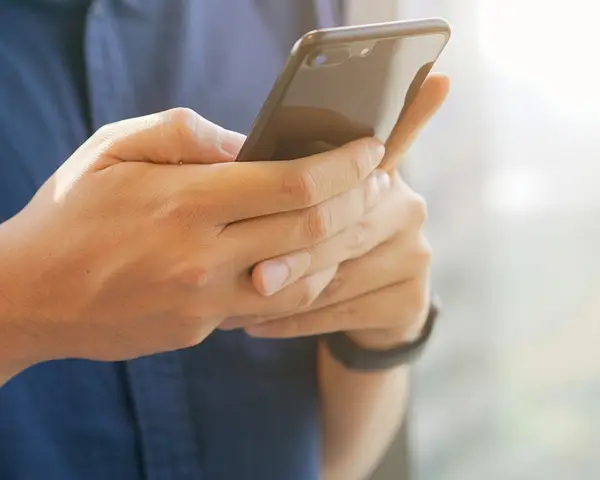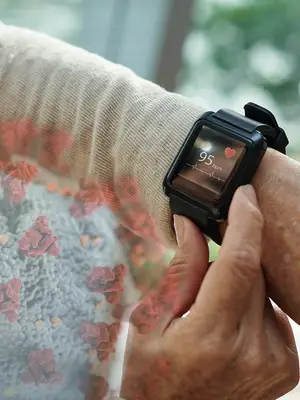Quarantine can be a scary word for many, and the psychological effects of isolation due to ongoing stay at home orders, social distancing, and self-quarantine are not well understood. Before COVID-19, the last large-scale quarantine in the United States was during a smallpox outbreak in the early 1960s. Prior research on the psychological effects of these countermeasures includes a study focused on hospital workers during the SARS Epidemic in 2003 which revealed that people’s perceptions of disease outbreak can play a role in the psychological impact of stressful events.
The psychological strain is expected to continue, even after life starts to return to relative normalcy. In China, media coverage has shown skyrocketing divorce filings attributed to the challenge of confinement. There has also been a surge of domestic violence reports worldwide.
Evidation Health’s COVID-19 Pulse has been tracking changes in people’s attitudes and experiences through a weekly, longitudinal survey from a 150,000+ connected cohort during this pandemic. Of greatest concern are the stark increases in stress and anxiety:
- 51% are now worried or very worried someone in their household will get coronavirus, versus 35% the week prior
- 49% are now reporting experiencing anxiety in the prior week, versus 29% previously
- 52% of those without health insurance are worried about not being able to work and earn a living because of the coronavirus disruptions, compared to only 36% of those with insurance
In addition, as of March 27, 2020, physical activity measures collected from consumer wearable devices and smartwatches worn by most study participants had declined 39% since March 1, 2020. These trends are concerning for two reasons. First, there is emerging evidence that those who were more active may be better able to fight COVID, and second, physical activity is a known mediator of stress management and psychological health and wellness.
Social isolation and chronic stress have been recognized as a major risk factors for morbidity and mortality for decades. COVID-19 countermeasures have created ideal conditions for these risk factors to combine alongside reductions in physical activity.
“The uncertainty of events could increase anxiety,” said Kody Kinsley of the N.C. Department of Health and Human Services in The News & Observer. “Individuals who could potentially be recovering from past illness or folks who have never had a depressive disorder could experience the social isolation of being alone and move down a path of depression.”
The Rise of Mobile Health Apps to Address Stress and Anxiety
The increases in chronic stress and anxiety, coupled with required social isolation have caused the popularity of meditation and breathing apps such as Headspace and Calm to increase sharply over the past month. These companies are offering free resources, thus avoiding a paywall that might have otherwise driven away the recently unemployed. However, recent research indicates that of the 293 apps claiming to offer therapeutic treatment for depression and/or anxiety, only 3.41% had published research on their effectiveness.

only
3.41%
of the 293 apps claiming to offer therapeutic treatment had published research on their effectiveness
With the average cost to develop a digital health app settling around $425,000 and the science behind the app requiring clinical trials to prove the app’s efficacy, it’s no wonder that evidence-based apps make up such a low percentage of the total app population. Smartphone-based, personalized health interventions are not a new concept, but their acceptance and use may increase in response to the COVID-19 pandemic. As a result, it is critical that they should be offering evidence-based, effective treatment options.
RTI International has helped develop and test the evidence-based efficacy of digital health apps to reduce stress and anxiety in the past. From 2016 to 2019, RTI was funded by the U.S. Army Medical Research and Materiel Command to conduct the Biofeedback-Assisted Resilience Training for Traumatic and Operational Stress (BART) study. The study evaluated whether the practice of slow, paced breathing with feedback could enhance psychological resilience.
Using RTI’s Personalized Health Intervention Toolkit (PHIT), we created the BART app for use on both Android and iOS devices. Study participants were recruited from military reserve units, the Army National Guard, military veterans, and first responders. The BART app collected heart rate data from a wearable sensor, then calculated physiological changes that are associated with stress, respiratory sinus arrythmia (RSA), and low frequency heart rate variability (LF-HRV). These heart rate calculations were recorded during cognitive-stressor tasks and were analyzed along with self-reported questionnaire responses given before, during, and after the cognitive-stressor task.

Highlights from the results of the BART study include:
- Participants found several new protective variables—including emotional support and being open to new possibilities— to be helpful for handling stress
- Posttraumatic growth and physical health predicted that participants would have better HRV recovery from the stressor task
- BART successfully moved heart rate data collection from the laboratory to the participant’s home environment, collecting over 600 hours of heart rate data
Digital health apps like BART show promise in reducing chronic stress and could play a role in mitigating the current and impending psychological effects of the COVID-19 pandemic.
Participant-based, app-managed studies open up opportunities to expand research and new methods to provide interventions. During challenging times such as these, it can be difficult to make sure we are taking care of ourselves. It’s important to make self-care easier, and in doing so, put ourselves in a better position to remain healthy and take better care of the people around us.





